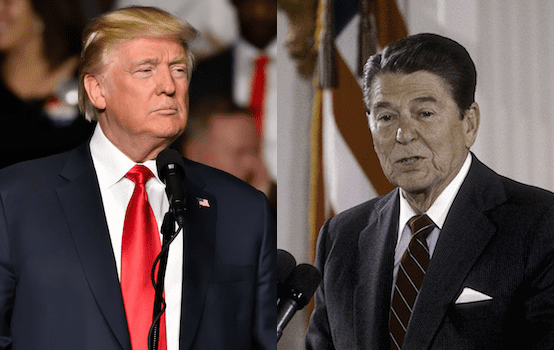We Don’t Need a ‘Reagan Doctrine’ for Iran

Dana Rohrabacher couldn’t be more wrong about Trump and the Iranian protests:
Just as the dissidents behind the Iron Curtain knew Ronald Reagan was a true ally and sincere believer in human rights, so in Iran today the Iranian people sense that President Trump is on their side and that President Obama was on the side of the mullahs.
There is no evidence that “the Iranian people” believe either of these things, and the comparison with Reagan is unfounded. Dissidents in the USSR and eastern Europe had some reason to think Reagan genuinely sympathized with them because he had long been an anticommunist opponent of their regimes, but Trump has shown the people of Iran nothing but contempt since he entered office. His administration has sought to bar all Iranians from coming to the U.S., and the president intends to reimpose sanctions lifted as part of the nuclear deal. These are not the acts of someone who is on the “side” of Iran’s people, nor would anyone in Iran mistake Trump as a friend of theirs. These are the acts of someone who is relentlessly hostile to both the Iranian government and people and whose policies fail to make any meaningful distinction between the two.
As if this weren’t bad enough, Rohrabacher calls for using an imitation “Reagan Doctrine” in Iran:
We need a Reagan Doctrine for Iran—notably supporting the Kurds, Azeris, Baluchis, Arabs, and anti-regime Persians to form new systems based on self-determination or a more decentralized federal political structure.
In practice, the “Reagan Doctrine” usually involved stoking internal conflicts that did serious harm to the affected countries. If the U.S. tried something similar in Iran, it would most likely lead to pointless bloodshed and deeper repression. The problem with Rohrabacher’s proposal isn’t just that U.S. meddling would harm the cause of those it is supposedly trying to help, but that it mistakenly takes for granted that the U.S. has some right to force political changes in another country. The U.S. has no business trying to create “new systems based on self-determination or a more decentralized federal political structure” in another country, no matter how desirable those changes might seem in theory, and I doubt that our government is competent enough to succeed in doing this in any case. The sort of subversion Rohrabacher calls for risks inflaming ethnic tensions and giving the regime a ready-made excuse to tar all domestic critics as agents of our government.
Comments